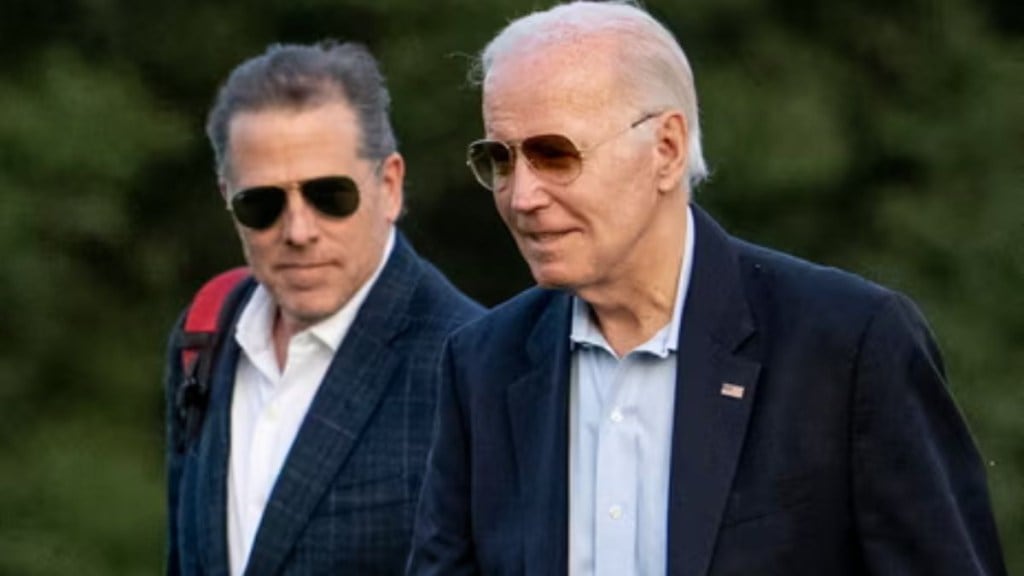President Joe Biden pardoned his son, Hunter, on Sunday (December 1) night, overriding previous statements in which he had ruled out using his presidential powers to help family members. The pardon shields Hunter Biden from potential prison time related to federal felony gun and tax convictions, ending a prolonged legal ordeal.
The decision marks a reversal of the president’s earlier promises, particularly after he had repeatedly asserted he would not intervene in his son’s legal matters. During his campaign and tenure, Biden had pledged to uphold norms and respect for the rule of law, emphasising his commitment not to pardon relatives in criminal cases.
Biden stance had been clear as recently as June, when he stated he would “abide by the jury decision” in Hunter’s ongoing cases and not offer him clemency. As late as November 8, White House Press Secretary Karine Jean-Pierre reinforced that no pardon or commutation would be granted to Hunter. “We’ve been asked that question multiple times. Our answer stands, which is no,” Biden had said earlier.
‘Miscarriage of justice’
In a statement released Sunday evening, President Biden described the prosecution of his son as politically motivated and an example of a “miscarriage of justice.” Biden suggested that the charges were initiated at the behest of his political opponents to undermine his presidency.
“The charges in his cases came about only after several of my political opponents in Congress instigated them to attack me and oppose my election,” Biden said.
“No reasonable person who looks at the facts of Hunter’s cases can reach any other conclusion than Hunter was singled out only because he is my son,” Biden added. “I hope Americans will understand why a father and a President would come to this decision,” he further said while expressing hope that Americans would understand his decision from both a father’s and a president’s perspective.
The legal troubles of Hunter Biden
Hunter Biden had been facing serious legal consequences. In June, he was convicted of three felonies related to the purchase of a firearm in 2018, during which he allegedly lied on a federal form about his drug use. He was also set to face trial on tax-related charges in California, where he faced accusations of failing to pay over $1.4 million in taxes.
While the tax charges carried a potential sentence of up to 17 years in prison, the gun charges could result in up to 25 years. However, sentencing guidelines suggested he would likely face much less time, with the possibility of avoiding prison altogether.
The pardon not only covers these specific convictions but extends to any other offenses Hunter may have committed between January 1, 2014, and December 1, 2024. The timing of the pardon comes just weeks before Hunter Biden was set to be sentenced and as President-elect Donald Trump prepares to take office in January 2025.
Hunter Biden’s legal troubles began in December 2020, when he publicly revealed that he was under federal investigation, a month after his father’s election victory. His case has remained a political flashpoint, with Republicans often pointing to it as a symbol of the Biden family’s alleged corruption.
Hunter Biden, in a statement of his own, expressed gratitude for the pardon, emphasizing his commitment to personal growth. “I will never take this relief for granted,” he said, vowing to dedicate his life to helping others who are struggling with addiction. “I have admitted and taken responsibility for my mistakes during the darkest days of my addiction,” he added, noting that his past struggles had been exploited for political purposes.
President Biden’s use of his pardon power is not without precedent. Former President Donald Trump similarly issued pardons to close allies, including his son-in-law Jared Kushner’s father, Charles Kushner, in the final weeks of his presidency.

